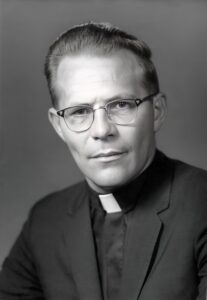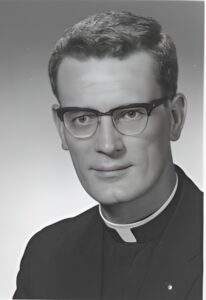In a letter to Fr. Trenkenschuh dated June 14, 1975, Bishop Sowada wrote: "I consider the museum, along with the Asia Foundation's support for libraries and printing, to be the greatest contribution to the development and relief of the Asmat people in recent years. I hope it will continue to be successful, even though it is expensive (not for us), it is certain for the well-being of the Asmat people. Credit and gratitude must go to Fr. Trenk for this.
According to Father Trenkenschuh, the main purpose of the museum is to ensure that the Asmat people do not lose their sense of identity and contact with their own history. It is also planned to become an educational center with stories, slideshows, films and cassettes from different Asmat regions. It was Father Trenkenschuh who not only conceived the idea, but was also the driving force behind funding the museum and its projects.
The Asmat Museum of Culture and Progress was built and owned by the Agats-Asmat Diocese. The museum was officially opened on August 11, 1973.
The Asmat Museum is perhaps unique. Most museums are built in large cities, far from the various sources of their collections. Displays of artifacts such as those of the Asmat are usually provocative and informative, but of course they exist in a completely foreign world and are therefore limited in scope. As Buehler wrote in Art of the South Seas, "With few exceptions, it is no longer possible to study South Seas art in situ.
The Museum of Asmat Culture and Progress was expressly created and designed as a place where the Asmat people could see their own past and present.



